How a Former English Teacher Discovered Her Inner Math Child at NCTM
by May 05th, 2016
 All Blog Posts
All Blog Posts
By Christine Condon
I was never good at math. Language Arts was where I excelled. It started with my first short story in sixth grade that Mrs. Westra read aloud to the class. I was hooked on writing after that. What I wasn’t hooked on was math.
I would say things like, “I’m not a math person.” Unfortunately, I grew up with a fixed mindset when it came to math.
So how did I end up at NCTM with 9,000 math teachers? Six months ago, I heard Emily Diehl of Mindset Works speak about growth mindset and math students. And I started my journey of developing my own growth mindset, and part of that is encouraging myself to step out of my comfort zone. It was humbling to be at NCTM, because there’s a lot I don’t remember about math and some I probably didn’t fully understand in the first place…instead I was swept away with the rest of the class on to the next algorithm. At NCTM, I saw things in a new way that I wish I’d seen in middle school.
I was so inspired by the fun I saw these teachers and speakers having with math—and by how eager they are to make it REAL for their students.
Here are a few statements and strategies that inspired me at NCTM—and in some cases, I think they would have helped the 7th grade version of me find my love of math:
- Sherry Parrish, the author of Number Talks, advises teachers to have a conversation around purposely created problems that are solved mentally. Have students reason mentally and look at the relationships between numbers. She said, “Develop flexibility among fractions, decimals and percentages.” Parrish also shared these words of wisdom from Piaget: “Children only have real understanding of that which they invent themselves, and each time we try to teach them too quickly we keep them from reinventing it themselves.”
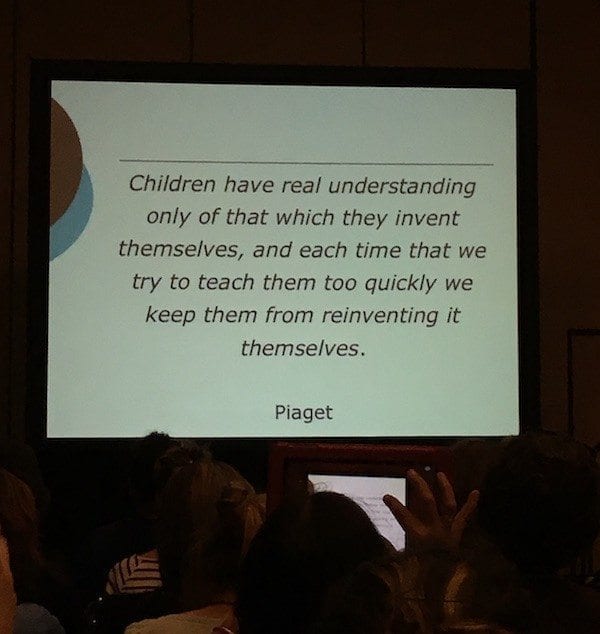
Sherry Parrish, author of Number Talks, presents at NCTM
- Jo Boaler, whose session was in such demand that 200 people were shut out when the room reached capacity, shared performance results around growth mindset. She said, “It’s the kids that have a growth mindset who believe ‘I can learn anything,’ who go on to achieve at higher levels in math and in life.” She showed brain scans that showed brain growth in students with a growth mindset vs. a fixed mindset. Challenges and struggle are most important for brain growth—a point I wish I had known as I struggled through pre-algebra years ago! Boaler stressed that when we believe in ourselves our brains work differently. Interestingly the “growth mindset” brain heat map showed high activity: the child’s brain was “on fire” with growth and learning. Boaler says, “It’s really important that we change kids’ beliefs about what they can do.”
- The presenters from the Rodel Foundation of Arizona offered suggestions for helping parents who are frustrated with math: Be proactive with communicating math messages to them. Provide them with a “cheat sheet” of representations.
- As a teacher, our instinct is to explain more until they get it. But instead, “Get kids thinking about what solutions are,” Gail Burrill stated during ShadowCon. She also quoted a few math teachers who inspired her, including Steven Reinhart: “Never say anything a kid can say.” (2000)
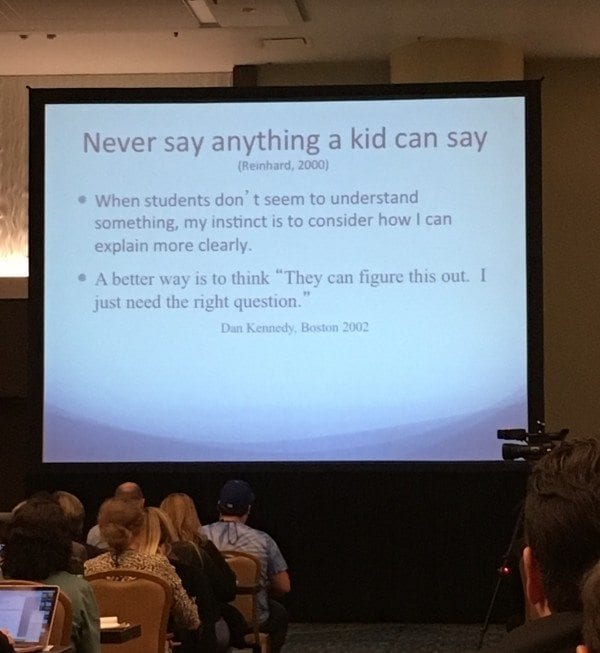
Gail Burrill shares words of wisdom at NCTM
ShadowCon, the teacher-led mini conference, was probably the most math energizing session I attended; each speaker sent us away with a Call to Action. Brian Bushcart’s really hit home for me:
Give yourself permission to try. Get to know the math. Ask questions. Allow students to explore, play and find joy in doing math.
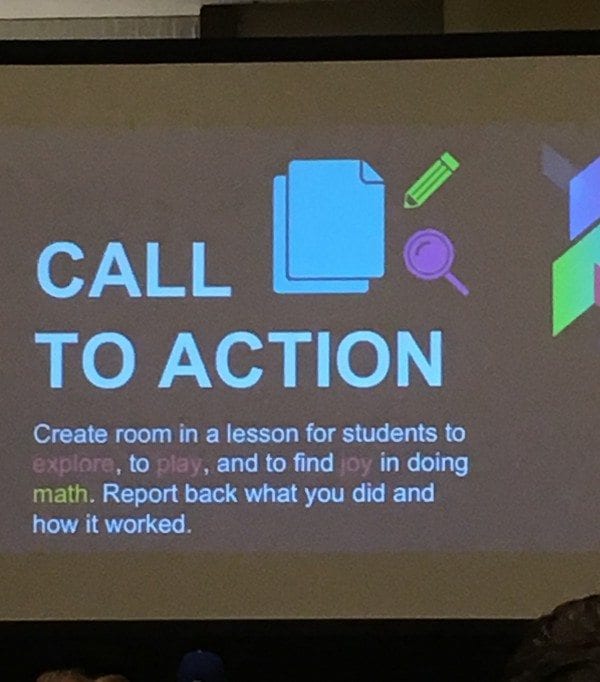
Brian Bushcart’s Shadowcon session at NCTM
Inviting students to ask their own questions about math was a major theme throughout the conference. The mantra in recent years has been to make math “real world” to make it interesting for students. But the message I heard at NCTM 2016 was that getting kids thinking deeply about math so that they can visualize it makes it real world and makes it personal to them. On the final day, Dan Meyer said, “If you can guess about it, it is your real world. If you can argue about it, it’s your real world… Invite them to ask questions about numbers and shapes.”
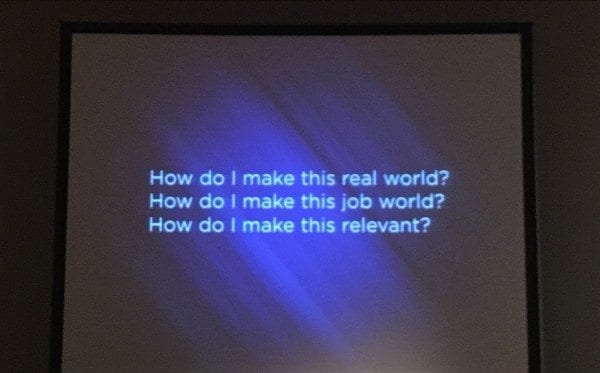
Dan Meyer’s inspiring session at NCTM
Empowering students to explore math and embrace learning in this way resonated with me both as a former teacher—and as a former student who would love to take math all over again.
Christine Condon is Senior Manager of Communications at Houghton Mifflin Harcourt. She is a former secondary English teacher who has worked in educational publishing for more than 15 years. Christine holds an MFA in Creative Writing from The New School in New York City, and her blog articles have appeared in Business Insider and The Huffington Post.

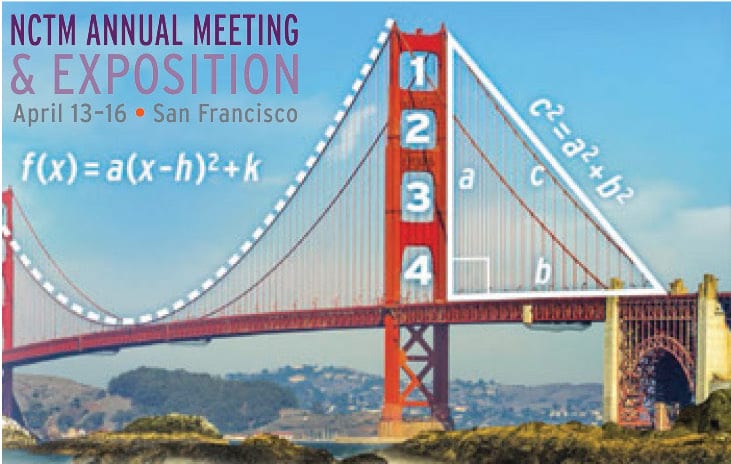
Comments